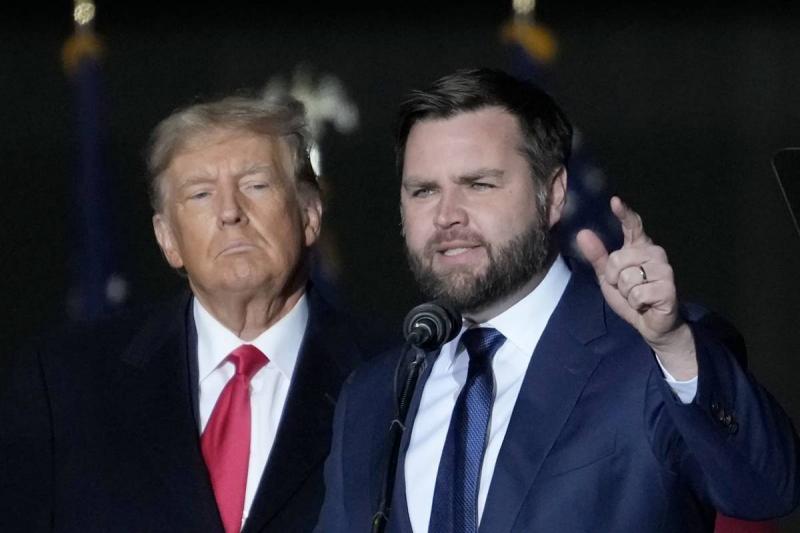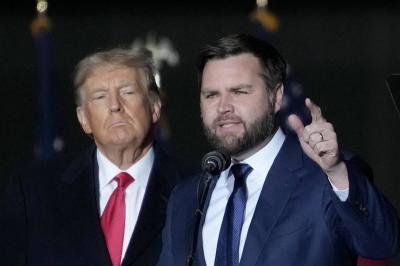The geographical distance between Silicon Valley in California and the White House in Washington may exceed 1,500 km, but this separation almost disappears when considering how tech industry titans currently influence the election race in the U.S. presidential elections. The extent of this influence became evident when front-runner Donald Trump selected James David Vance as his running mate, potentially the youngest vice president in U.S. history.
The trend of major names in Silicon Valley, home to leading tech companies, leaning towards supporting Donald Trump marks a significant shift. This shift is likely to accelerate following billionaire Elon Musk’s announcement of his commitment to donate $45 million monthly to Trump's campaign, alongside former businessman J.D. Vance joining the ranks of Republican donors.
These developments indicate a change in the traditionally liberal stances of Silicon Valley, as investors and executives declare their support for Trump following the Biden administration's approach to regulating artificial intelligence and the stringent actions taken against acquisitions by major tech firms. Additionally, Biden's poor performance in the first presidential debate and the assassination attempt on Trump have further endorsed this transformation.
**The Crab Dinner Vote**
Vance, a potential vice president, spent less than five years in the tech industry in Silicon Valley, but the relationships he established with Peter Thiel and others were crucial for his political ascension. Last month, he traveled to San Francisco to hold a fundraising gala for Trump, followed by a private dinner with dozens of tech executives and cryptocurrency investors.
The venue was the luxurious mansion of David Sacks, an entrepreneur and podcast host whom Vance met through tech investor Peter Thiel, where Vance worked at one of Thiel’s investment firms in San Francisco in 2016. Notably, Thiel once stated he would never support Trump, but he has changed his stance, especially with his favored candidate now as a running mate.
During the crab dinner, where each attendee donated $300, Trump, sitting between Sacks and another tech investor, Chamath Palihapitiya, conducted an informal poll in the room about his choice for a running mate—both men responded with "Vance," according to two individuals familiar with the exchange, as reported by The New York Times.
The 39-year-old Vance, a U.S. senator from Ohio, spent his five years in the tech industry primarily as a startup entrepreneur and executive in biotechnology. While he did not leave a significant mark on the tech scene, his formative experience helped propel him within the Republican Party, likely influencing his political future.
Vance's time in tech was pivotal for forming relationships with top executives and billionaire investors, including Thiel, Sacks, and Elon Musk. These individuals repeatedly financed Vance's political aspirations and elevated his status among other wealthy donors, pressuring Trump to select him as his running mate.
Before the 2022 midterm elections, Thiel contributed $15 million to support Vance's Senate campaign, while Sacks donated $1 million to a political action committee backing Vance's candidacy. On a post on Truth Social, Trump cited "Vance's incredibly successful business career in tech and finance" as reasons for his selection as a running mate.
However, if Trump and Vance win the presidency in November, it remains unclear whether Vance will maintain the same good relations with Silicon Valley interests. This uncertainty arises from Vance's praise for the Federal Trade Commission, which has brought antitrust cases against major tech companies, and his calls to break up Google. Nevertheless, Palihapitiya stated, "Vance is an exceptional choice. We will all be better off because he is working on our behalf."
**Why Trump?**
The increasing support among tech executives feeds into Trump's campaign efforts, providing significant funding from wealthy donors, many of whom have shifted to the right politically in recent years, often in protest against the Biden administration's approach to regulating major tech firms and cryptocurrencies.
Boris Feldman, a long-time attorney for tech companies and a Republican, stated, "Ultimately, people vote according to their interests. For tech executives, the idea that every acquisition they hope to accomplish over the next few years will face a backlash and be restricted for years should Trump win is significant."
However, it is important to note that there are other names in Silicon Valley supporting Biden, according to an analysis by the Journal of Federal Election Commission data. Among the major donors are former Alphabet CEO Eric Schmidt and tech investors Laurene Powell Jobs, John Doerr, and Ron Conway. Co-founder of LinkedIn Reid Hoffman alone donated over $8 million to support Biden's reelection efforts.
**12 Million Dollars**
Before teaming up with Trump on the ballot, Vance helped link Trump with Silicon Valley funding during a fundraising campaign in June, managing to raise about $12 million from 80 individuals. During this event, Vance spoke off the cuff about developing artificial intelligence, easing cryptocurrency regulations, and other issues on attendees' minds. Notably, some of these participants had previously voted for Democrats, including Hillary Clinton and Biden, such as venture capitalist Sherwin Peshavar, who was involved in hosting the event.
Peshavar remarked, "If you look at the Biden administration, they’ve appointed a group of people literally active in the SEC, the FDA, and the FCC, who are enacting overly stringent policies that do not support innovation. This has been crucial for me and my community."




